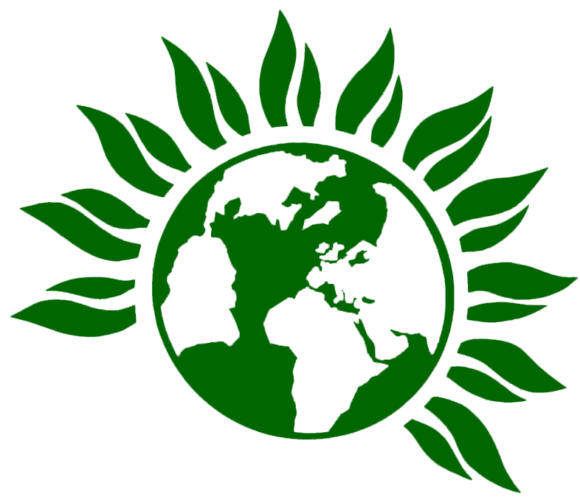Statistic cookies help website owners to understand how visitors interact with websites by collecting and reporting information anonymously.
Name: __qca
Provider: issuu.com
Purpose: Collects anonymous data on the user's visits to the website, such as the number of visits, average time spent on the website and what pages have been loaded with the purpose of generating reports for optimising the website content.
Expiry: 1 year
Type: HTTP Cookie
Name: _ga
Provider: jeanlambertmep.org.uk
Purpose: Registers a unique ID that is used to generate statistical data on how the visitor uses the website.
Expiry: 2 years
Type: HTTP Cookie
Name: _gat
Provider: jeanlambertmep.org.uk
Purpose: Used by Google Analytics to throttle request rate
Expiry: 1 day
Type: HTTP Cookie
Name: _gid
Provider: jeanlambertmep.org.uk
Purpose: Registers a unique ID that is used to generate statistical data on how the visitor uses the website.
Expiry: 1 day
Type: HTTP Cookie
Name: ab
Provider: agkn.com
Purpose: This cookie is used by the website’s operator in context with multi-variate testing. This is a tool used to combine or change content on the website. This allows the website to find the best variation/edition of the site.
Expiry: 1 year
Type: HTTP Cookie
Name: collect
Provider: google-analytics.com
Purpose: Used to send data to Google Analytics about the visitor's device and behaviour. Tracks the visitor across devices and marketing channels.
Expiry: Session
Type: Pixel Tracker
Name: vuid
Provider: vimeo.com
Purpose: Collects data on the user's visits to the website, such as which pages have been read.
Expiry: 2 years
Type: HTTP Cookie
Name: wui
Provider: weborama.com
Purpose: Contains an visitor ID - This is used to identify the visitor upon re-entry to the website.
Expiry: 3 months
Type: HTTP Cookie
Marketing cookies are used to track visitors across websites. The intention is to display ads that are relevant and engaging for the individual user and thereby more valuable for publishers and third party advertisers.
Name: __ab12#
Provider: sharethis.com
Purpose: Pending
Expiry: 1 year
Type: HTTP Cookie
Name: _cc_aud
Provider: crwdcntrl.net
Purpose: Collects anonymous statistical data related to the user's website visits, such as the number of visits, average time spent on the website and what pages have been loaded. The purpose is to segment the website's users according to factors such as demographics and geographical location, in order to enable media and marketing agencies to structure and understand their target groups to enable customised online advertising.
Expiry: 269 days
Type: HTTP Cookie
Name: _cc_cc
Provider: crwdcntrl.net
Purpose: Collects anonymous statistical data related to the user's website visits, such as the number of visits, average time spent on the website and what pages have been loaded. The purpose is to segment the website's users according to factors such as demographics and geographical location, in order to enable media and marketing agencies to structure and understand their target groups to enable customised online advertising.
Expiry: Session
Type: HTTP Cookie
Name: _cc_dc
Provider: crwdcntrl.net
Purpose: Collects anonymous statistical data related to the user's website visits, such as the number of visits, average time spent on the website and what pages have been loaded. The purpose is to segment the website's users according to factors such as demographics and geographical location, in order to enable media and marketing agencies to structure and understand their target groups to enable customised online advertising.
Expiry: 269 days
Type: HTTP Cookie
Name: _cc_id
Provider: crwdcntrl.net
Purpose: Collects anonymous statistical data related to the user's website visits, such as the number of visits, average time spent on the website and what pages have been loaded. The purpose is to segment the website's users according to factors such as demographics and geographical location, in order to enable media and marketing agencies to structure and understand their target groups to enable customised online advertising.
Expiry: 269 days
Type: HTTP Cookie
Name: _cs_marauder_last_session_id
Provider: facebook.com
Purpose: Pending
Expiry: Persistent
Type: HTML Local Storage
Name: 3pi
Provider: id5-sync.com
Purpose: Sets a unique ID for the visitor, that allows third party advertisers to target the visitor with relevant advertisement. This pairing service is provided by third party advertisement hubs, which facilitates real-time bidding for advertisers.
Expiry: 3 months
Type: HTTP Cookie
Name: adnxs
Provider: sharethis.com
Purpose: Used to present the visitor with relevant content and advertisement - The service is provided by third party advertisement hubs, which facilitate real-time bidding for advertisers.
Expiry: Session
Type: Pixel Tracker
Name: adscores/r.pixel
Provider: agkn.com
Purpose: Used to present the visitor with relevant content and advertisement - The service is provided by third party advertisement hubs, which facilitate real-time bidding for advertisers.
Expiry: Session
Type: Pixel Tracker
Name: AFFICHE_W
Provider: weborama.fr
Purpose: Used by the advertising platform Weborama to determine the visitor's interests based on pages visits, content clicked and other actions on the website.
Expiry: 3 months
Type: HTTP Cookie
Name: bkdc
Provider: bluekai.com
Purpose: Registers anonymised user data, such as IP address, geographical location, visited websites, and what ads the user has clicked, with the purpose of optimising ad display based on the user's movement on websites that use the same ad network.
Expiry: 179 days
Type: HTTP Cookie
Name: bkpa
Provider: bluekai.com
Purpose: Used to present the visitor with relevant content and advertisement - The service is provided by third party advertisement hubs, which facilitate real-time bidding for advertisers.
Expiry: 179 days
Type: HTTP Cookie
Name: bku
Provider: bluekai.com
Purpose: Registers anonymised user data, such as IP address, geographical location, visited websites, and what ads the user has clicked, with the purpose of optimising ad display based on the user's movement on websites that use the same ad network.
Expiry: 179 days
Type: HTTP Cookie
Name: c/121/121/0/1.gif
Provider: id5-sync.com
Purpose: Collects information on visitor behaviour on multiple websites. This information is used on the website, in order to optimize the relevance of advertisement.
Expiry: Session
Type: Pixel Tracker
Name: CacheStorageVersion
Provider: facebook.com
Purpose: Used to track visitors on multiple websites, in order to present relevant advertisement based on the visitor's preferences.
Expiry: Persistent
Type: HTML Local Storage
Name: callback
Provider: id5-sync.com
Purpose: Collects data on visitor behaviour from multiple websites, in order to present more relevant advertisement - This also allows the website to limit the number of times that the visitor is shown the same advertisement.
Expiry: 1 day
Type: HTTP Cookie
Name: car
Provider: id5-sync.com
Purpose: Used to present the visitor with relevant content and advertisement - The service is provided by third party advertisement hubs, which facilitate real-time bidding for advertisers.
Expiry: 1 day
Type: HTTP Cookie
Name: cf
Provider: id5-sync.com
Purpose: Sets a unique ID for the visitor, that allows third party advertisers to target the visitor with relevant advertisement. This pairing service is provided by third party advertisement hubs, which facilitates real-time bidding for advertisers.
Expiry: 1 day
Type: HTTP Cookie
Name: cip
Provider: id5-sync.com
Purpose: Used to present the visitor with relevant content and advertisement - The service is provided by third party advertisement hubs, which facilitate real-time bidding for advertisers.
Expiry: 1 day
Type: HTTP Cookie
Name: ck
Provider: go.affec.tv
Purpose: Collects data on user visits to the website, such as what pages have been accessed. The registered data is used to categorise the user's interest and demographic profiles in terms of resales for targeted marketing.
Expiry: 1 year
Type: HTTP Cookie
Name: cm
Provider: rfihub.com
Purpose: Identifies if the cookie-data needs to be updated in the visitor's browser - This is determined through third-party ad-serving-companies.
Expiry: Session
Type: Pixel Tracker
Name: cnac
Provider: id5-sync.com
Purpose: Used to present the visitor with relevant content and advertisement - The service is provided by third party advertisement hubs, which facilitate real-time bidding for advertisers.
Expiry: 1 day
Type: HTTP Cookie
Name: cookie
Provider: onaudience.com
Purpose: Pending
Expiry: 1 year
Type: HTTP Cookie
Name: csync.ashx
Provider: ml314.com
Purpose: Used to present the visitor with relevant content and advertisement - The service is provided by third party advertisement hubs, which facilitate real-time bidding for advertisers.
Expiry: Session
Type: Pixel Tracker
Name: done_redirects#
Provider: onaudience.com
Purpose: Pending
Expiry: 1 day
Type: HTTP Cookie
Name: EE
Provider: exelator.com
Purpose: Collects data related to the user's visits to the website, such as the number of visits, average time spent on the website and what pages have been loaded, with the purpose of displaying targeted ads.
Expiry: 119 days
Type: HTTP Cookie
Name: eud
Provider: rfihub.com
Purpose: Registers anonymised user data, such as IP address, geographical location, visited websites, and what ads the user has clicked, with the purpose of optimising ad display based on the user's movement on websites that use the same ad network.
Expiry: 1 year
Type: HTTP Cookie
Name: euds
Provider: rfihub.com
Purpose: Registers anonymised user data, such as IP address, geographical location, visited websites, and what ads the user has clicked, with the purpose of optimising ad display based on the user's movement on websites that use the same ad network.
Expiry: Session
Type: HTTP Cookie
Name: everest_g_v2
Provider: everesttech.net
Purpose: Used for targeted ads and to document efficacy of each individual ad.
Expiry: 1 year
Type: HTTP Cookie
Name: eyeota
Provider: sharethis.com
Purpose: Used to present the visitor with relevant content and advertisement - The service is provided by third party advertisement hubs, which facilitate real-time bidding for advertisers.
Expiry: Session
Type: Pixel Tracker
Name: fifid
Provider: fiftyt.com
Purpose: Pending
Expiry: 1 year
Type: HTTP Cookie
Name: fifty
Provider: sharethis.com
Purpose: Pending
Expiry: Session
Type: Pixel Tracker
Name: gdpr
Provider: id5-sync.com
Purpose: Pending
Expiry: 1 day
Type: HTTP Cookie
Name: GPS
Provider: youtube.com
Purpose: Registers a unique ID on mobile devices to enable tracking based on geographical GPS location.
Expiry: 1 day
Type: HTTP Cookie
Name: https://pixel.onaudience.com/
Provider: onaudience.com
Purpose: Pending
Expiry: Session
Type: Pixel Tracker
Name: id5
Provider: id5-sync.com
Purpose: Sets a unique ID for the visitor, that allows third party advertisers to target the visitor with relevant advertisement. This pairing service is provided by third party advertisement hubs, which facilitates real-time bidding for advertisers.
Expiry: 3 months
Type: HTTP Cookie
Name: IDE
Provider: doubleclick.net
Purpose: Used by Google DoubleClick to register and report the website user's actions after viewing or clicking one of the advertiser's ads with the purpose of measuring the efficacy of an ad and to present targeted ads to the user.
Expiry: 1 year
Type: HTTP Cookie
Name: int/lotame
Provider: sharethis.com
Purpose: Pending
Expiry: Session
Type: Pixel Tracker
Name: iutk
Provider: issuu.com
Purpose: Recognises the user's device and what Issuu documents have been read.
Expiry: 10 years
Type: HTTP Cookie
Name: mako_uid
Provider: eyeota.net
Purpose: Collects data on user visits to the website, such as what pages have been accessed. The registered data is used to categorise the user's interest and demographic profiles in terms of resales for targeted marketing.
Expiry: 1 year
Type: HTTP Cookie
Name: match
Provider: eyeota.net
Purpose: Pending
Expiry: Session
Type: Pixel Tracker
Name: mc
Provider: quantserve.com
Purpose: Collects data on the user's visits to the website, such as what pages have been loaded. The registered data is used for targeted ads.
Expiry: 13 months
Type: HTTP Cookie
Name: mediamath
Provider: sharethis.com
Purpose: Used to present the visitor with relevant content and advertisement - The service is provided by third party advertisement hubs, which facilitate real-time bidding for advertisers.
Expiry: Session
Type: Pixel Tracker
Name: nlsn
Provider: sharethis.com
Purpose: Pending
Expiry: Session
Type: Pixel Tracker
Name: ONPLFTRH
Provider: eyeota.net
Purpose: Used to track visitors on multiple websites, in order to present relevant advertisement based on the visitor's preferences.
Expiry: Session
Type: HTTP Cookie
Name: oo
Provider: go.affec.tv
Purpose: Collects data on user visits to the website, such as what pages have been accessed. The registered data is used to categorise the user's interest and demographic profiles in terms of resales for targeted marketing.
Expiry: 1 year
Type: HTTP Cookie
Name: pi
Provider: ml314.com
Purpose: Pending
Expiry: 1 year
Type: HTTP Cookie
Name: platform161
Provider: sharethis.com
Purpose: Pending
Expiry: Session
Type: Pixel Tracker
Name: PREF
Provider: youtube.com
Purpose: Registers a unique ID that is used by Google to keep statistics of how the visitor uses YouTube videos across different websites.
Expiry: 8 months
Type: HTTP Cookie
Name: pt
Provider: go.affec.tv
Purpose: Collects data on user visits to the website, such as what pages have been accessed. The registered data is used to categorise the user's interest and demographic profiles in terms of resales for targeted marketing.
Expiry: 1 year
Type: HTTP Cookie
Name: pxcelBcnLcy
Provider: sharethis.com
Purpose: Pending
Expiry: Session
Type: HTTP Cookie
Name: pxcelPage_c010
Provider: sharethis.com
Purpose: Pending
Expiry: 6 days
Type: HTTP Cookie
Name: rud
Provider: rfihub.com
Purpose: Registers anonymised user data, such as IP address, geographical location, visited websites, and what ads the user has clicked, with the purpose of optimising ad display based on the user's movement on websites that use the same ad network.
Expiry: 1 year
Type: HTTP Cookie
Name: ruds
Provider: rfihub.com
Purpose: Registers anonymised user data, such as IP address, geographical location, visited websites, and what ads the user has clicked, with the purpose of optimising ad display based on the user's movement on websites that use the same ad network.
Expiry: Session
Type: HTTP Cookie
Name: SEUNCY
Provider: semasio.net
Purpose: Registers a unique ID that identifies the user's device for return visits.
Expiry: 1 year
Type: HTTP Cookie
Name: sharethis/1/info2
Provider: uipglob.semasio.net
Purpose: Enables the visitor to share content from the website onto social media platforms or websites.
Expiry: Session
Type: Pixel Tracker
Name: smd
Provider: rfihub.com
Purpose: Used to present the visitor with relevant content and advertisement - The service is provided by third party advertisement hubs, which facilitate real-time bidding for advertisers.
Expiry: 1 year
Type: HTTP Cookie
Name: TapAd_DID
Provider: tapad.com
Purpose: Used to determine what type of devices (smartphones, tablets, computers, TVs etc.) is used by a user.
Expiry: 2 months
Type: HTTP Cookie
Name: TapAd_TS
Provider: tapad.com
Purpose: Used to determine what type of devices (smartphones, tablets, computers, TVs etc.) is used by a user.
Expiry: 2 months
Type: HTTP Cookie
Name: TDCPM
Provider: adsrvr.org
Purpose: Registers a unique ID that identifies a returning user's device. The ID is used for targeted ads.
Expiry: 1 year
Type: HTTP Cookie
Name: TDID
Provider: adsrvr.org
Purpose: Registers a unique ID that identifies a returning user's device. The ID is used for targeted ads.
Expiry: 1 year
Type: HTTP Cookie
Name: test_cookie
Provider: doubleclick.net
Purpose: Used to check if the user's browser supports cookies.
Expiry: 1 day
Type: HTTP Cookie
Name: ttd
Provider: sharethis.com
Purpose: Pending
Expiry: Session
Type: Pixel Tracker
Name: tuuid
Provider: creative-serving.com
Purpose: Collects unidentifiable data, which is sent to an unidentifiable receiver. The receiver's identity is kept secret by Perfect Privacy LLC.
Expiry: 1 year
Type: HTTP Cookie
Name: ud
Provider: exelator.com
Purpose: Collects anonymous data related to the user's visits to the website, such as the number of visits, average time spent on the website and what pages have been loaded, with the purpose of displaying targeted ads.
Expiry: 119 days
Type: HTTP Cookie
Name: uid
Provider: turn.com
Purpose: Collects anonymous data related to the user's visits to the website, such as the number of visits, average time spent on the website and what pages have been loaded, with the purpose of displaying targeted ads.
Expiry: 179 days
Type: HTTP Cookie
Name: uuid [x2]
Provider: avocet.io mathtag.com
Purpose: This cookie is used to optimize ad relevance by collecting visitor data from multiple websites – this exchange of visitor data is normally provided by a third-party data-center or ad-exchange.
Expiry: 1 year
Type: HTTP Cookie
Name: uuid2
Provider: adnxs.com
Purpose: Registers a unique ID that identifies a returning user's device. The ID is used for targeted ads.
Expiry: 3 months
Type: HTTP Cookie
Name: uuidc
Provider: mathtag.com
Purpose: Collects data on the user's visits to the website, such as what pages have been loaded. The registered data is used for targeted ads.
Expiry: 1 year
Type: HTTP Cookie
Name: VISITOR_INFO1_LIVE
Provider: youtube.com
Purpose: Tries to estimate the users' bandwidth on pages with integrated YouTube videos.
Expiry: 179 days
Type: HTTP Cookie
Name: wam-sync
Provider: weborama.com
Purpose: Used to track visitors on multiple websites, in order to present relevant advertisement based on the visitor's preferences.
Expiry: 6 days
Type: HTTP Cookie
Name: YSC
Provider: youtube.com
Purpose: Registers a unique ID to keep statistics of what videos from YouTube the user has seen.
Expiry: Session
Type: HTTP Cookie
Name: yt-remote-cast-installed
Provider: youtube.com
Purpose: Stores the user's video player preferences using embedded YouTube video
Expiry: Session
Type: HTML Local Storage
Name: yt-remote-connected-devices
Provider: youtube.com
Purpose: Stores the user's video player preferences using embedded YouTube video
Expiry: Persistent
Type: HTML Local Storage
Name: yt-remote-device-id
Provider: youtube.com
Purpose: Stores the user's video player preferences using embedded YouTube video
Expiry: Persistent
Type: HTML Local Storage
Name: yt-remote-fast-check-period
Provider: youtube.com
Purpose: Stores the user's video player preferences using embedded YouTube video
Expiry: Session
Type: HTML Local Storage
Name: yt-remote-session-app
Provider: youtube.com
Purpose: Stores the user's video player preferences using embedded YouTube video
Expiry: Session
Type: HTML Local Storage
Name: yt-remote-session-name
Provider: youtube.com
Purpose: Stores the user's video player preferences using embedded YouTube video
Expiry: Session
Type: HTML Local Storage
Unclassified cookies are in the process of being classified, together with the providers of individual cookies.
Name: abid
Provider: entitytag.co.uk
Purpose: Pending
Expiry: 2 years
Type: HTTP Cookie
Please enable Necessary Cookies first so that we can save your preferences!


